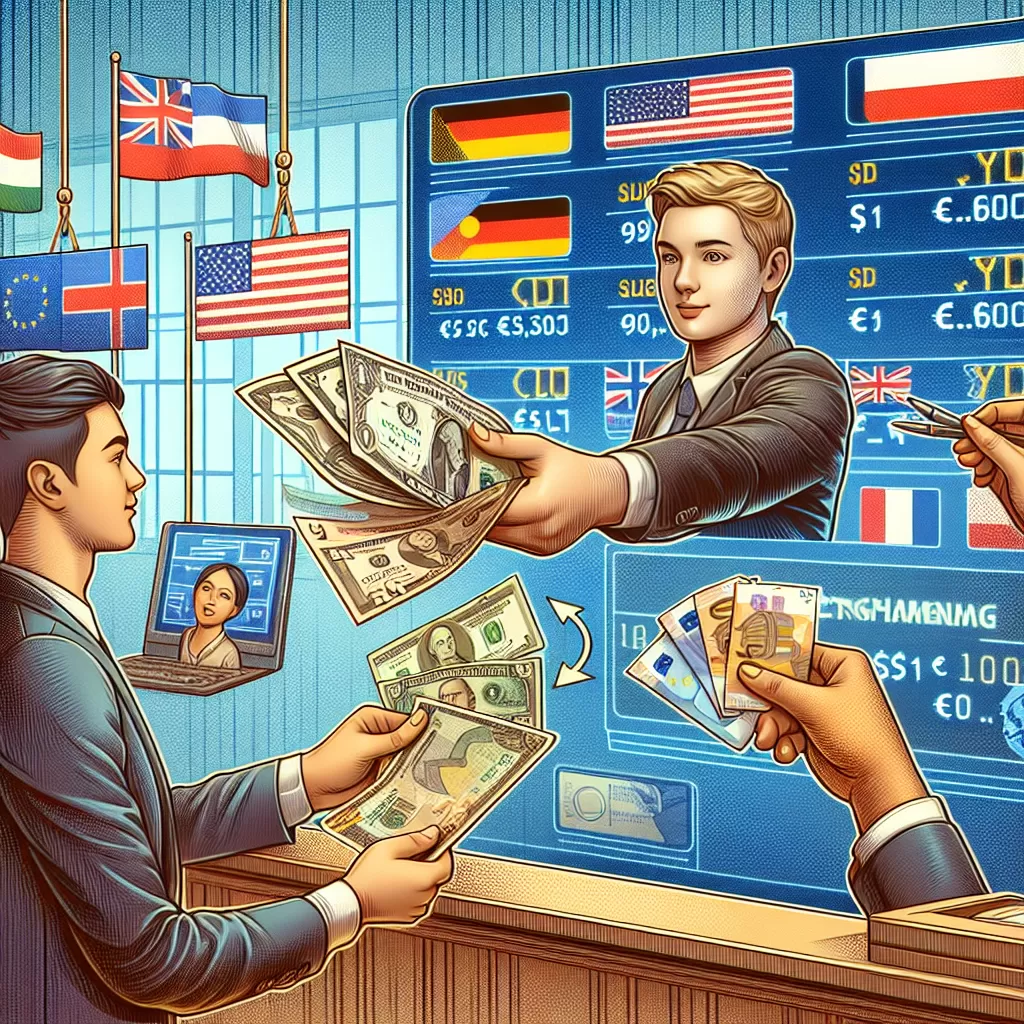How To Do Currency Exchange
Follow Currency Mart April 10, 2024
Where to purchase Foreign Currencies?

A Comprehensive Guide to Currency Exchange: Navigating the Realm of Financial Alchemy
Introduction to Currency Exchange
Currency exchange, often referred to as foreign exchange or forex, involves trading one currency for another. It's a crucial element of international commerce, travel, and investment. The world of currency exchange might seem complex, but with some basic knowledge and keen observation, it becomes comprehensible and manageable.Understanding Currency Exchange Rates
Currency exchange rates are determined by global foreign exchange markets. Supply and demand for different currencies cause these rates to fluctuate. Influential factors include economic indicators, geopolitical events, and market psychology. Understanding these fluctuations leads to a shrewd comprehension of the forex market.Traditional Banks and Their Currency Exchange Services
Banks offer familiar and secure currency exchange services. Banks typically charge a mark-up for the convenience and assurance, making them generally more expensive than forex brokers. It's essential to inquire about the exchange rate and associated fees before making the transaction.Using Online Exchange Platforms
Online platforms revolutionized currency exchange by providing access anytime, anywhere. Most platforms offer competitive rates and low fees, making them a popular choice. Companies like TransferWise, Revolut, and Payoneer provide reliable online forex services. Confidence in these platforms' security is essential.Currency Exchange Bureaus
Currency exchange bureaus are independent businesses that trade currencies. They often offer better rates than traditional banks. However, they commonly charge a service fee, which might offset these seemingly advantageous rates. Always compare the combined rate and fees before transaction.Peer-to-Peer (P2P) Currency Exchange
Peer-to-peer exchange involves matching individuals looking to exchange one currency for another. In P2P exchanges, the middleman is eliminated and transactions are directly between the two parties. This method often results in reduced exchange costs.Using Credit Cards for Currency Exchange
Credit cards are commonly used for overseas transactions. They typically offer one of the most competitive exchange rates. However, hidden fees like foreign transaction fees or cash advance fees can pile up so always check the rates and charges before use.Prepaid Foreign Currency Cards
These cards work like regular debit cards but are loaded with a predetermined amount of foreign currency. Convenient and secure, they offer competitive conversion rates. Be aware of any fees for reloading the card, withdrawing cash or inactivity.How to Get the Best Exchange Rate
The most effective way to ensure you're getting the best exchange rate is by doing research and staying updated. Keep an eye on the financial news, utilize currency converter apps, and always compare rates across different services.Minimizing Currency Exchange Fees
Ask about any associated fees before you exchange currency. Use platforms that offer low exchange fees and competitive rates. Some services have more favorable rates if you exchange larger amounts, so consider consolidating your currency needs.Conclusion
Currency exchange is a gateway to global economic participation. Understanding how this process works, and the various options available will ensure you get the most out of your international transactions. Keep abreast with global economics and always be skeptical about too good to be true offers. Journey through this realm of financial alchemy with wisdom and caution.
Where to purchase Foreign Currencies?